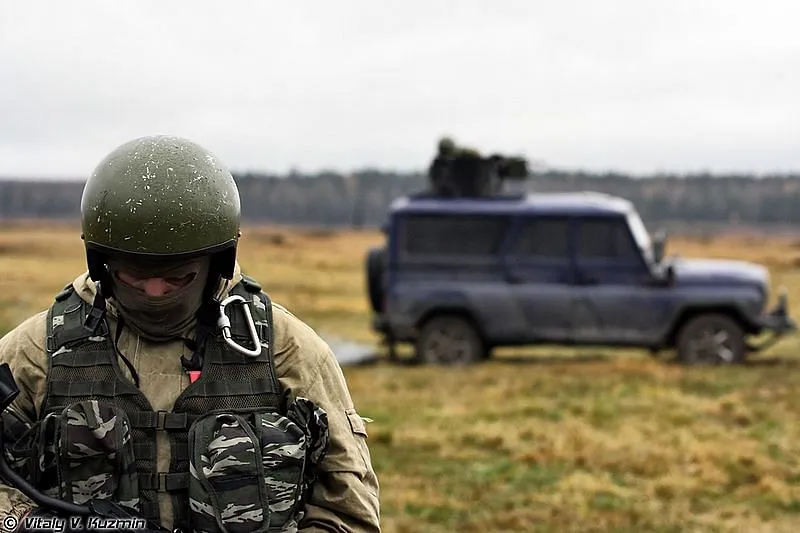The Ukraine crisis is in the centre of the global attention, for, at the moment, it is a war without war, or to phrase it differently, it is a countdown to a war which is engulfed in the contesting perceptions of the superpowers.
The anticipation of war is more dangerous than the war itself. The uncertainty is killing .
The US has predicted Russia will invade Ukraine , and Russia’s equivocation is deepening the sense of unease of the Ukrainian people . They are already living in shadow of war.
Primarily at stake is Russian President Vladimir’s ambition to establish his country’s preeminence in the world order. There is an itch to regain the Soviet Union era dominance and influence.
The US and some of the leading powers in Europe are worried that Putin might grab the territory and influence through the use of military power. He has already demonstrated that by annexing Crimea.
The West believes that this can turn into a tide and Russia may become more aggressive and challenge the democratic nations and change the current world order.
Two arguments are at play: Russia will invade Ukraine and achieve its goals, the other is that it will achieve all it wanted without going in for war. A war-like situation has been created, with its over 100,000 troops amassed along Ukraine border, and that will serve Moscow’s purpose.
Whatever might happen to Ukraine, and how the US Russia confrontation will play out in Europe and how the rest of the world will respond or get affected, have become a subject matter of intense debate. But one thing is certain that a war-like situation on the borders has its own consequences which move beyond the defined boundaries of the nations involved.
This may not turn out to be the physical extension of the conflict, though in this particular case, the possibilities of such a thing happening loom large because of the threats being held out by the US and European countries operating under NATO. It will have a long-term spillover effect.
In this pandemic-hit world, with disrupted economy, war without war doesn’t bode well. Each conflict has a cyclical effect and the current landscape of the world is riddled with so many conflicts from Africa to Gulf and also within South Asia and Europe.
The escalating tensions in Yemen and its fallout in the Gulf countries, imploding Afghanistan and march of the ISIS in parts of the world will multiply the oppressive impact.
It is a different world, much different from the era when the Soviet Union come into being and it is also far removed from the times when it imploded following its humiliating defeat in Afghanistan in 1980s.
The situation has come to such a pass where the world is again divided into blocs and the US’s attempts to play a dominant role in securing its interests in Europe are being resented by Russia and China.
The times when US could strut as world policeman are over. And Russia is not what the Soviet Union used to be, though it may have the aspirations to bring all the nations that fell apart. Something, however, remains unchanged; the imperialistic tendencies.
This situation, where scenes of war are emerging from amassing of Russian troops on the Ukrainian border and the NATO allies planning their own response, is evolving at the time when the world economic institutions, World Bank and IMF, have forecast downturn in the global economy.
The Pandemic having inflicted serious wounds on the businesses and burdened the governments with extra cost in health care and feeding the people. This era of lockdowns, reckoned as safety valve against the spread of virus, can afford a war with thousands of troops staying together is bizarre.
The amassing of huge number of troops is not only a military issue but it has economic costs. The near- permanent permanence of the troops on borders is a drain on resources. Can Russia afford this, though the fact remains that Moscow is not blinking its eyes over the repeated threats of sanctions by America and its NATO allies.
Russia is seeking to demonstrate its position of supremacy in the global affairs, almost similar to the times of Soviet Union in the bipolar world that emerged in cold war as a result of World War II. This is the ambition of the Russian president Vladimir Putin, and he is no Mikhail Gorbachev or Boris Yeltsin. He has shown his KGB steel frame. He is pursuing what is being interpreted as Putin doctrine.
Angela Stent, a renowned foreign policy expert on the Europe and Russia, while writing in Foreign Affairs, said ever since Putin came to power, he challenged the system crafted after the collapse of the Soviet Union and he has “demanded the West recognize Moscow’s right to a sphere of privileged interests in the post-Soviet space.
After having staged incursions into neighbouring states, such as Georgia, that have moved out of Russia’s orbit in order to prevent them from fully reorienting, she goes on to say, “ Putin has taken this approach one step further.
He is threatening a far more comprehensive invasion of Ukraine than the annexation of Crimea .” All this is aimed at undermining the current order and potentially reassert Russia’s preeminence in the European continent and in world affairs.
But this has costs, which he might not have calculated, and even if he has, in the wake of the US’s aggressive utterances of counter action, for him, his goal is more important than the consequences and costs.
He has seen through the vulnerabilities of the US. Afghanistan offers a classic example. But Europe is not Afghanistan, Russia is missing this point.
Disclaimer: The views and opinions expressed in this article are the personal opinions of the author.
The facts, analysis, assumptions and perspective appearing in the article do not reflect the views of GK.







